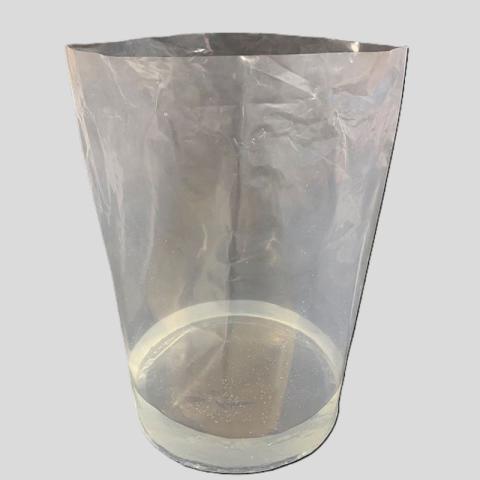Round bottom bag (Round bottom packaging bag) is bag with a rounded bottom design. Compared with the traditional flat-bottomed bags, its uniqueness lies in the curved structure of the bottom, which makes the bag stand more steadily after filling, without external support to maintain an upright state, providing convenience for product display and storage. Round-bottom bags are mostly made of plastic, such as polyethylene (PE) or polypropylene (PP), and can be sealed through a variety of processes, such as heat sealing and gluing, to ensure the integrity and safety of the package. Round bottom bag has the following features:
- Self-supporting: The rounded bottom design allows the bags to stand stably without external force, which is especially suitable for display products and increases shelf appeal.
- High space utilisation: Compared with flat bags, round bottom bags make better use of the internal space, especially suitable for storing granular, powdery or liquid chemicals, foodstuffs, electronic products, etc.
- Anti-leakage and anti-corrosion: For the special needs of chemical products, round-bottom bags are often designed with anti-leakage and anti-corrosion materials, such as PE, to ensure the safety and freshness of the contents.
- Customisation: Customised sizes, thicknesses, materials and printing patterns can be made according to the needs of different products to meet the dual needs of brand personalisation and product protection.
- Environmental protection: modern round bottom bags tend to use recyclable materials to reduce the impact on the environment, in line with the trend of sustainable development.

